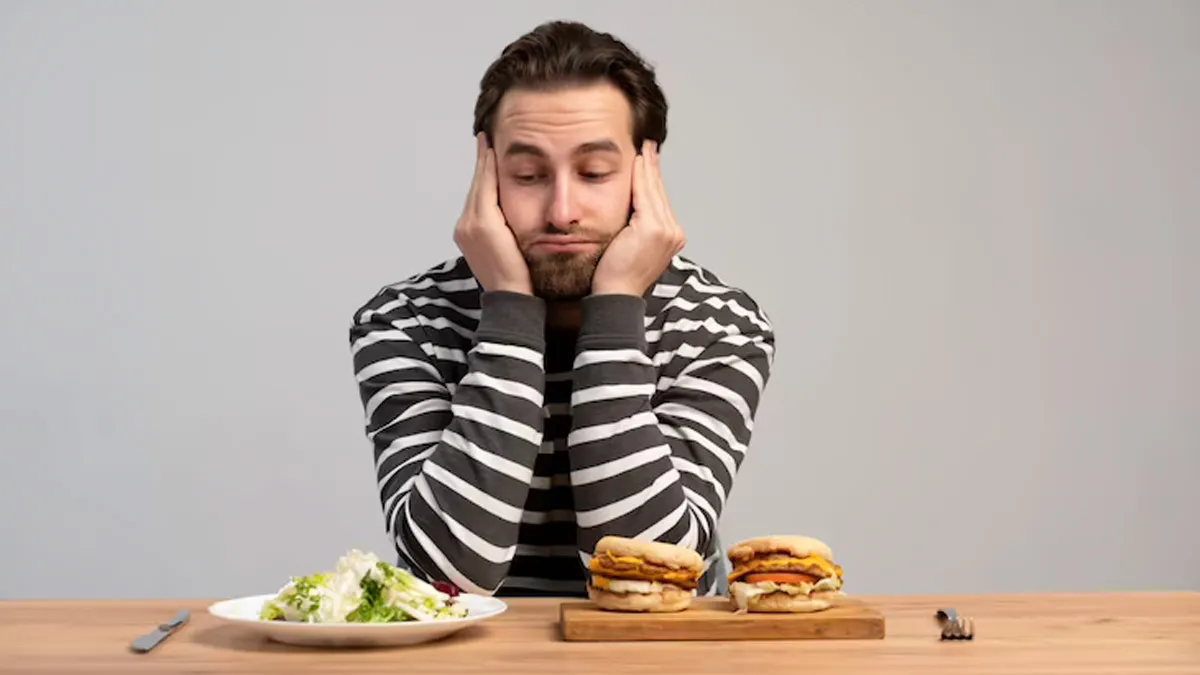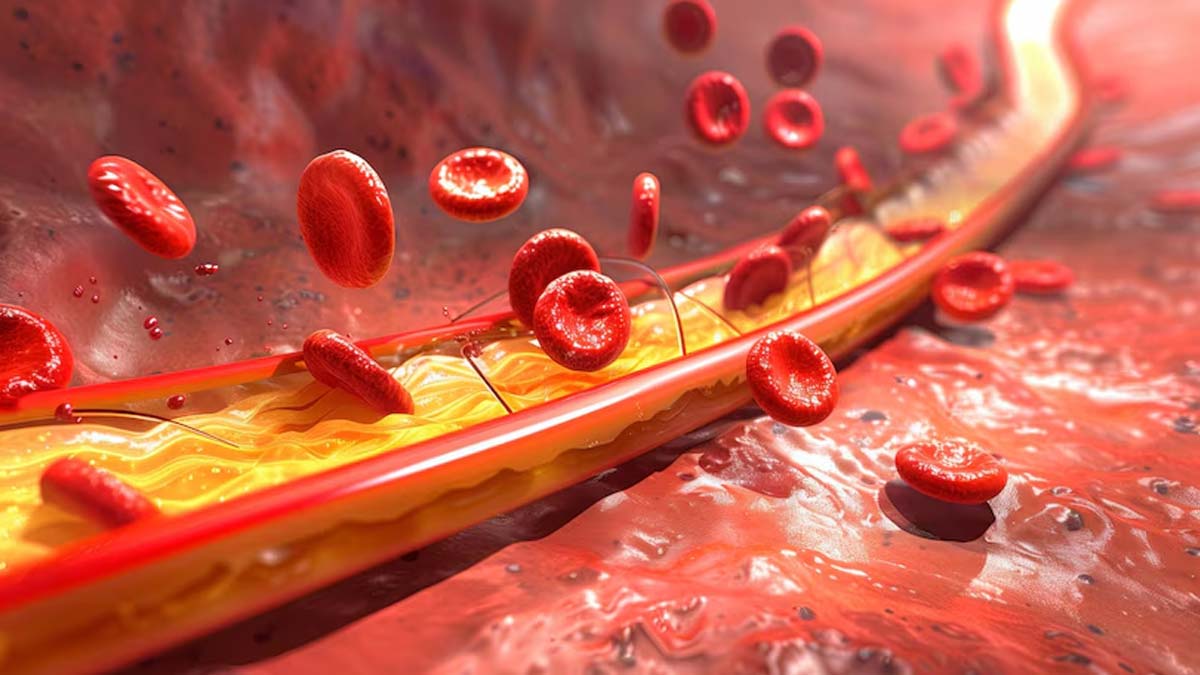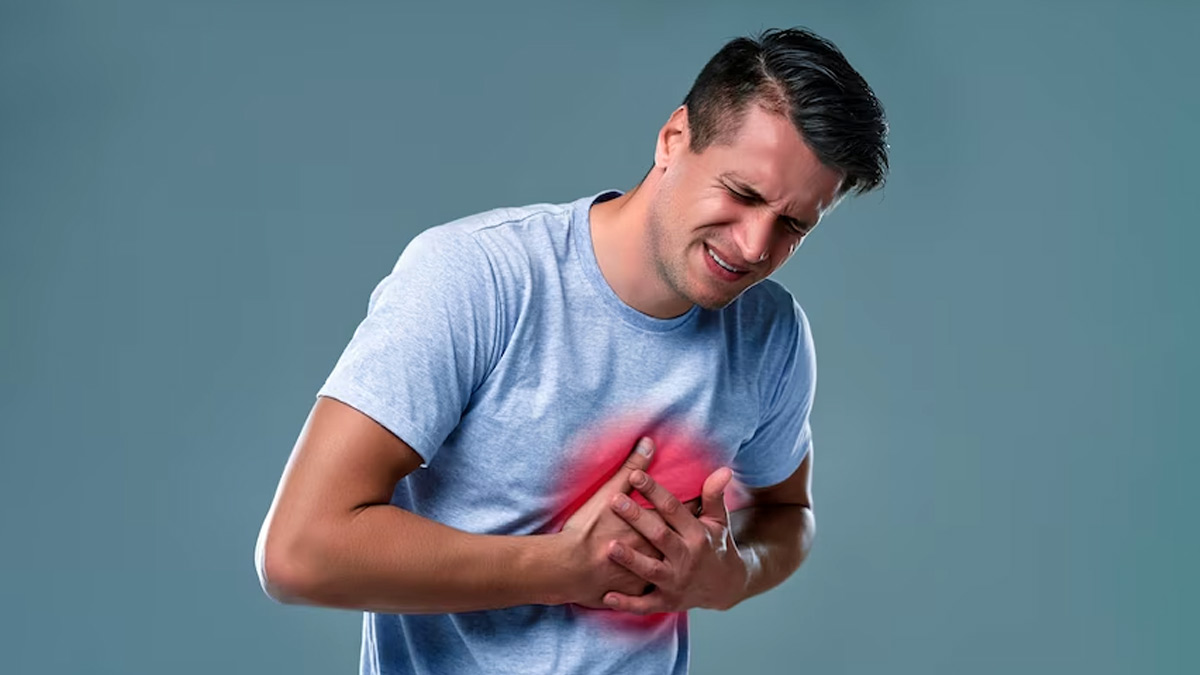
Sweating is a natural bodily response to temperature changes, exercise, and stress, but did you know it can also occur while eating? For many people, this phenomenon—often referred to as gustatory sweating—is a puzzling and uncomfortable experience. It can happen during or after meals, leading to an unexpected and sometimes excessive amount of perspiration. But what exactly causes this? And more importantly, how can it be addressed?
Table of Content:-
To understand better, we spoke to our expert Dr Ram Murti Sharma, Medical Superintendent, Sharda Hospital - Noida, to explain the possible reasons behind this condition, including the link between blocked arteries and eating-related sweating, along with potential solutions. Here is what he shared with us.
Connection Between Sweating and Eating
While sweating during meals can be linked to a variety of factors, it most commonly occurs due to the stimulation of the body's sympathetic nervous system. This is the part of the nervous system responsible for the ‘fight or flight’ response, which can trigger sweating when the body is under certain stressors.

According to Dr Sharma, “Gustatory sweating, specifically, happens when eating triggers the activation of sweat glands, usually in the face, neck, or upper chest. This can be particularly noticeable when consuming spicy foods, hot drinks, or high-fat meals, as these foods increase body temperature or stimulate certain areas of the digestive system.”
However, excessive sweating while eating can sometimes indicate underlying health issues, particularly cardiovascular problems, including blocked arteries.
Also Read: Heart Health: Here's How Loneliness Can Affect Your Heart
Blocked Arteries And Sweating While Eating
Blocked or narrowed arteries can affect blood flow throughout the body, including the digestive system. “When you eat, your body directs more blood to the stomach and intestines to aid in digestion. If your arteries are blocked or not functioning properly, the body may struggle to supply sufficient blood to these areas, leading to a series of compensatory mechanisms that can cause sweating,” Dr Sharma explained.

Blocked arteries can lead to the activation of the sympathetic nervous system, which causes your body to react as though it's under stress, even when you're simply eating. As a result, you may sweat more than usual during meals. “In severe cases, blocked arteries can also lead to chest pain or discomfort, which may further exacerbate the sweating response,” he added.
While sweating while eating alone does not always indicate blocked arteries, it can be a sign of other underlying cardiovascular issues, such as Coronary Artery Disease (CAD). CAD occurs when plaque builds up in the arteries, restricting blood flow and potentially causing chest pain, shortness of breath, and other symptoms.
Other Potential Causes of Sweating While Eating
In addition to blocked arteries, other factors may contribute to excessive sweating during meals:
- Spicy foods
- Hot foods or beverages
- Autonomic nervous system disorders
- Overactive thyroid
- Certain medications
Conclusion
Sweating while eating can be caused by a variety of factors, ranging from spicy foods to more serious health issues like blocked arteries. While occasional gustatory sweating is generally harmless, it can sometimes indicate a need for medical attention, particularly if accompanied by other symptoms like chest pain or shortness of breath. Hence, understanding the potential causes of this condition and taking steps to address underlying health concerns is important to reduce discomfort and improve your overall well-being. If you're unsure about the cause of your sweating, don't hesitate to speak with a healthcare professional for a personalised diagnosis and treatment plan.
Also watch this video
How we keep this article up to date:
We work with experts and keep a close eye on the latest in health and wellness. Whenever there is a new research or helpful information, we update our articles with accurate and useful advice.
Current Version